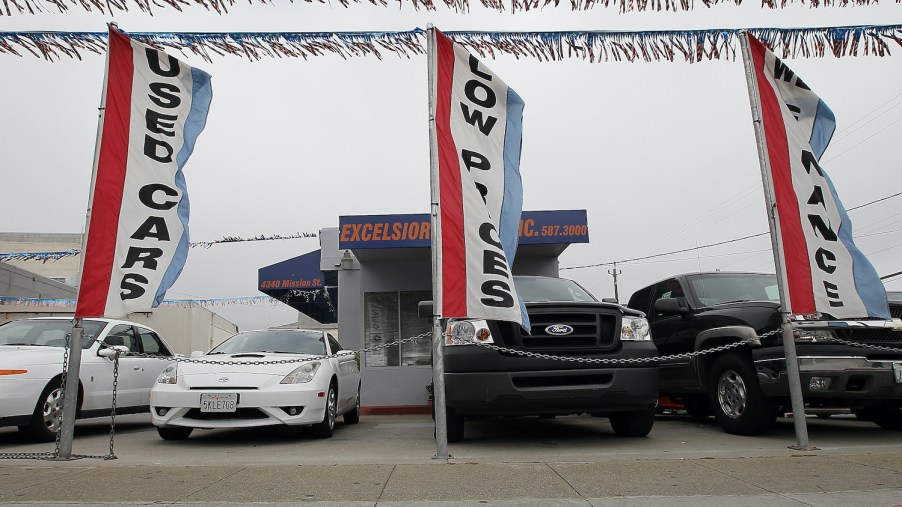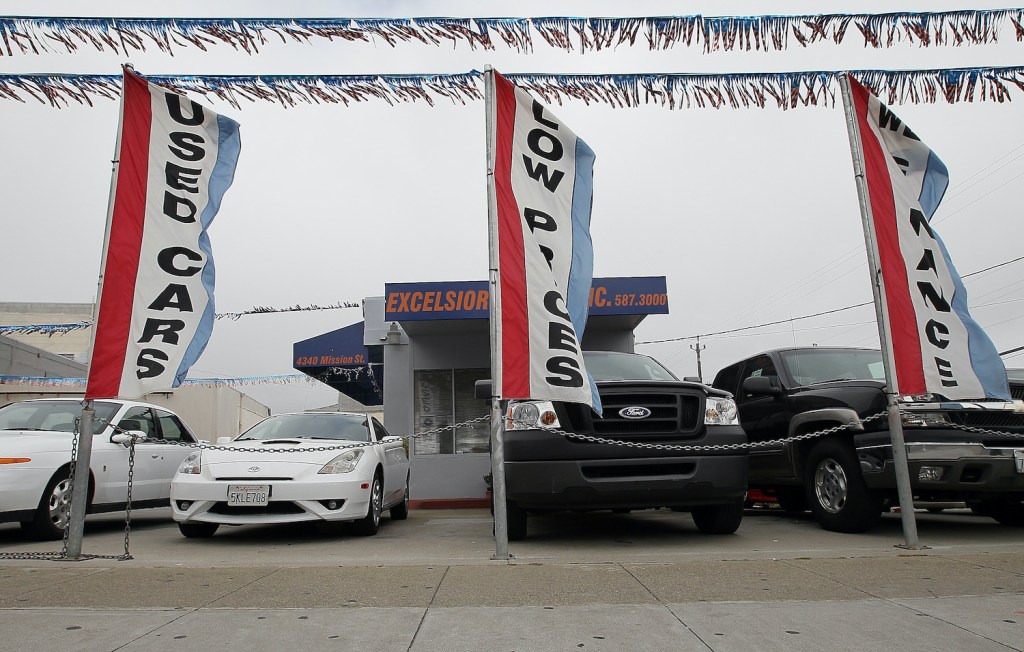
3 Things To Look Out for When Buying a Used Car
There’s a few key differences between buying a new car and buying a used car. When you buy used, for example, you’re going to want to do plenty of research. And while you should certainly research a new car before signing along the dotted line, there’s just a lot more to consider when buying a used car.

Always check a used car’s vehicle history report
Seeing a vehicle’s history report is a crucial step in the buying process. Consider it a window into the car’s past. Vehicle history reports provide an in-depth look at a car’s ownership, accident history, title status, mileage, and more. It’s what enables you, as a buyer, to make an informed buying decision.
Many dealerships offer free vehicle history reports for the cars they on their lots. You can also buy a single report from a vendor like AutoCheck or Carfax, though it will cost you. Fortunately, according to U.S. News & World Report, a vehicle history report should only cost between $25 and $40.
A car’s vehicle history report is also useful for determining whether there are any open recalls for the vehicle. An important part of car ownership is ensuring that you take recalls seriously and have your car repaired or updated if needed. Unfortunately, not all owners keep an eye out for recall reports or just don’t want to take the time to have the work for the recall to be performed.
Consider the mileage
You might be thinking that the lower the mileage, the better condition the used car you’re looking at is probably in. Unfortunately, as logical as that might sound, it’s not always going to be true. High mileage shouldn’t necessarily stop you from considering a used car either, though.
According to Autotrader, the way a used car has had miles added to its odometer is very important to understand. “A vehicle with all city miles will have a lot more wear and tear than one that’s had all highway miles, since highway miles are easier on a car,” reports Autotrader.
It’s important to compare how many miles a vehicle has to how well it’s been taken care of too. Has the owner followed the manufacturer’s advice in terms of things like oil changes and tire rotations? A used vehicle that’s been well taken care of, regardless of mileage, is a much better buy than a vehicle that’s never even been in for an oil change.
Check the body for rust, dents, and scratches
You’re buying a used car, so odds are, it’s going to have a couple of cosmetic issues. Whether it’s from a wayward grocery cart or from a more serious accident, however, is up to you to determine.
It’s important to check for rust too. According to CARFAX, if rust find its way into a vehicle’s frame or body structure, it can become a safety issue. And while vehicles today come with plenty of safety features, if rust causes just one component to fail in a crash, CARFAX says it could result in tragic consequences. CARFAX explained further, “If a vehicle’s structure gets rusty enough, there could be a catastrophic failure even in routine daily driving.”
Buying used means doing some detective work
There’s a lot that goes into buying a used car. From checking its vehicle history report to getting up close and personal with its exterior, it’s certainly a lot to take on. Your to-do list shouldn’t stop there either. You can’t forget to test drive it too, obviously.



